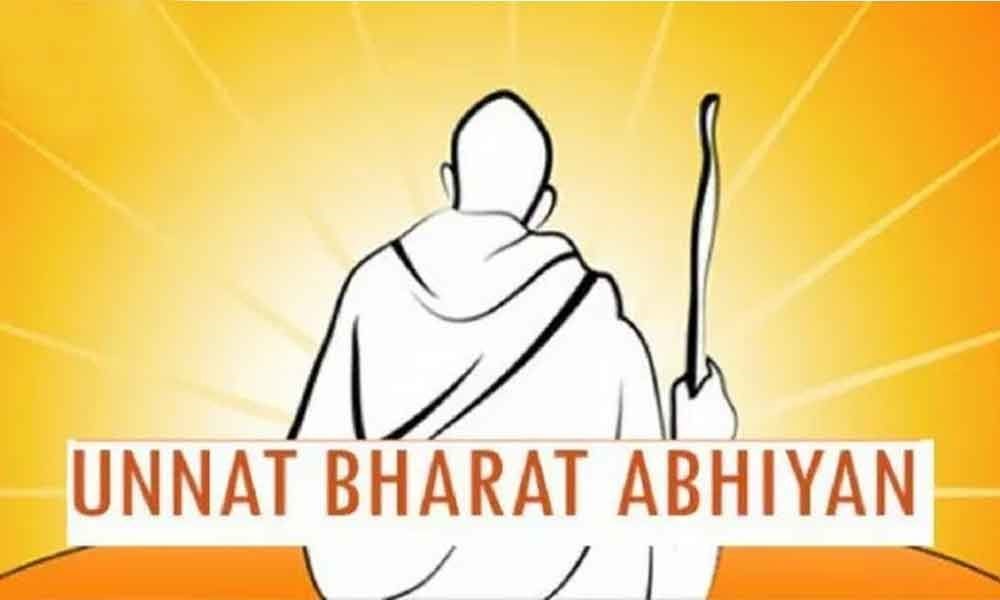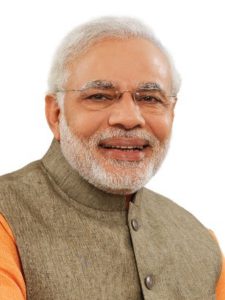Unnat Bharat Abhiyan
Unnat Bharat Abhiyan (UBA) is inspired by the vision of transformational change in rural development processes by leveraging knowledge institutions to help build the architecture of an Inclusive India. Their mission is conceptualized as a movement to enable processes that connect institutes of higher education with local communities to address the development challenges of rural India through participatory processes and appropriate technologies for accelerating sustainable growth. It also aims to create a virtuous cycle between the society and an inclusive university system by providing knowledge and practices for emerging professions and to upgrade the capabilities of both the public and the private sectors.
Vision: To involve professional and other higher educational institutions of the country in the process of indigenous development of self-sufficient and sustainable village clusters in tune with the notion of ‘GrāmSwarāj’ propounded by Mahatma Gandhi
Mission: In accordance with the above mentioned vision, Unnat Bharat Abhiyān will strive to pursue the following:
M1: To develop the necessary mechanism and proper networking among educational institutions, implementation agencies (PanchāyatiRāj Institutions) and the grass root voluntary organizations to enable effective intervention at the field level.
M2: To select suitable rural clusters and effectively participate in the holistic development of these clusters using eco-friendly sustainable technologies and local resources creating sufficient employment opportunities in the process, harnessing multifarious Govt. schemes as well as the efforts of voluntary organizations.
M3: To simultaneously, reorient the ethos, the academic curricula and research programs in professional institutions to make these more compatible with the national needs including those of rural areas, thus contributing to capacity building towards indigenous development.
‘Holistic Development of a Village’ (Grām Swarāj) Gandhiji had laid down a detailed vision of self-sufficient village clusters in his seminal writings on “GrāmSwarāj” in 1942:
In the words of Gandhi ji, let us quote “My idea of Village Swaraj is that it is a complete republic, independent of its neighbors for its own vital wants and inter-dependent for many others in which dependence is a necessity. Thus every village’s first concern will be to grow its own food crop and cotton for its cloth. It could has a reserve for its cattle, recreation and playground for adults and children. Then, if there is more land available, it will grow useful money crops, excluding ganja, tobacco, opium and the like. The village will maintain a village theatre, school and public hall. It will have its own water works ensuring clean water supply….” Unquote.
Participating Institution: Indus University
Indus University has established UBA-Cell which is responsible for carrying out the activities in rural areas. The UBA-Cell involve the development of an active working group consisting of motivated faculty members drawn from various Institutes and Departments as well as interested student representatives as Core Working Group/ Committee. This group is primarily responsible for carrying out the activities pertaining to UBA at Indus University.
To facilitate, guide and monitor the activities of the UBA cell, an Executive Committee and a Local Advisory Committee chaired by the Head of the Institution has been formed. The Advisory Committee composition has been drawn considering the experts in the field of rural development and selected representatives of Indus university.
The main responsibility of UBA cell is primarily to develop linkage with selective rural clusters, involve in the planning process as well as promote the requisite S&T interventions to improvise and expedite the developmental efforts in those clusters. On the other hand, UBA cell will also be responsible for developing the competence of its working group by appropriate orientation, training and creation an appropriate ethos within the institution towards indigenous and sustainable rural development; also initiating requisite curricular modifications for graduate programs and other facilitating measures.

Expected outcomes (from UBA):
The expected outcome from UBA mechanism is a long term affair, as revised development plans have to be prepared every year. However, the following broad expected outcomes have been identified during 3-years.
EO1: A network of MIs followed by PIs is established which has a fraternal relationship with the complete network of the PRIs and local Grass-root Organizations.
EO2: Much needed technical support becomes available to various authentic voluntary organizations engaged in rural development and the professional institutions get directly exposed to the real needs and the ground reality.
EO3: Gradual movement towards holistic development of the chosen cluster
EO4: Enough livelihood opportunities are created for the youth to reverse the migration to urban centers
EO5: The ethos, the academic curricula and research programs in professional institutions becomes more compatible with the national needs including those of rural areas
EO6: A mechanism is put in place to ensure knowledge exchange (exchange of traditional knowledge from villages), and amalgamation with modern scientific, technological knowledge from PIs
EO7: Student projects and the R&D projects undertaken by faculty become more relevant to rural areas
EO8: A bank of unfulfilled technology needs of rural areas is developed which becomes a dynamic source of live projects for the students, research scholars and faculty in the institute.
EO9: Contribution to technology policy of the nation to facilitate the process of indigenous development of the Nation in a sustainable way.
Proposed Activities (UBA): Indus University
Plan for Future Under Village Adoption Scheme:
- The team will be visiting more villages nearby Indus campus vicinity.
- More focused observational visits will be made in the above visited villages.
- Team will take part in the Panchayat Meetings for detailed discussions with Community People.
- Focus group discussions will be held for understanding the issues in the community.
- Participatory Research Exercise will be conducted for exploring the possibilities of community participation.
- Team will be meeting Non-Governmental organizations working in these villages.
- Team will also try to get the village census data/ house hold survey data if available with the district administration/ local panchayats.
- Team will also try to liaison with local administration to work in collaboration with University.
- Upcoming activities (survey data, Educational, Health, Agriculture, Water Quality Check, Renewable Energy) will be perform in villages.
- Development of Agriculture and Food
- Nutritional Intervention Incl. Soil-Health Card
- Food Grain Production Technology
- Rural Technology Action Process
- Rainwater Harvesting and Rural Drinking water supply
- Micro Irrigation and Water Conservation
- Disaster Management incl. Flood, Drought, Heat-wave, Earthquake
- Water Quality Check
- Water Purification including Reverse Osmosis, Ultra-filtration
- Use of Renewable Energy Incl. Smokeless Chulha
- Health and Medical Camp
- National Service Scheme (NSS)
- village census data/ house hold survey data

